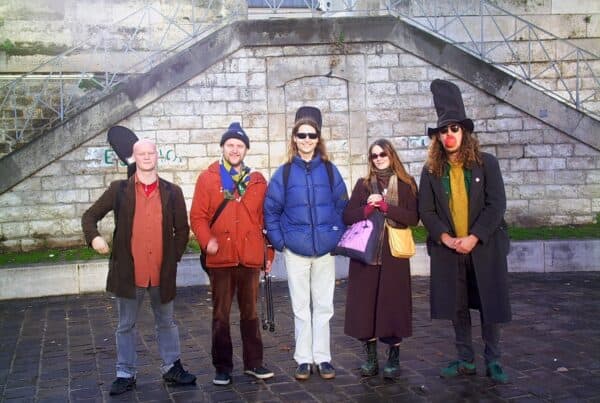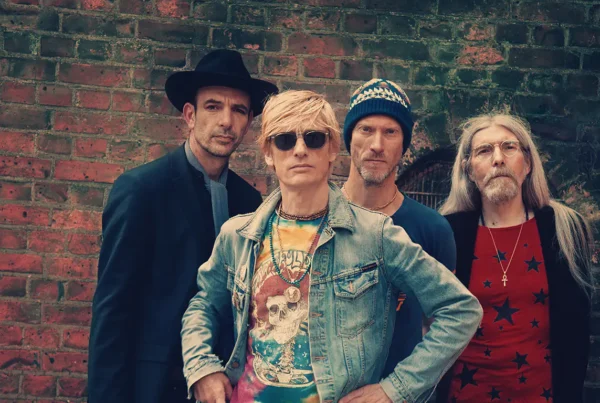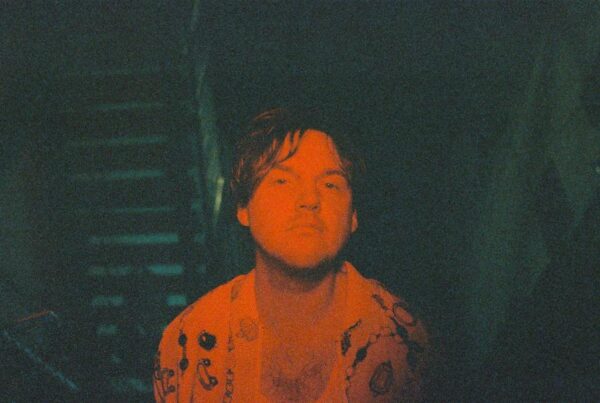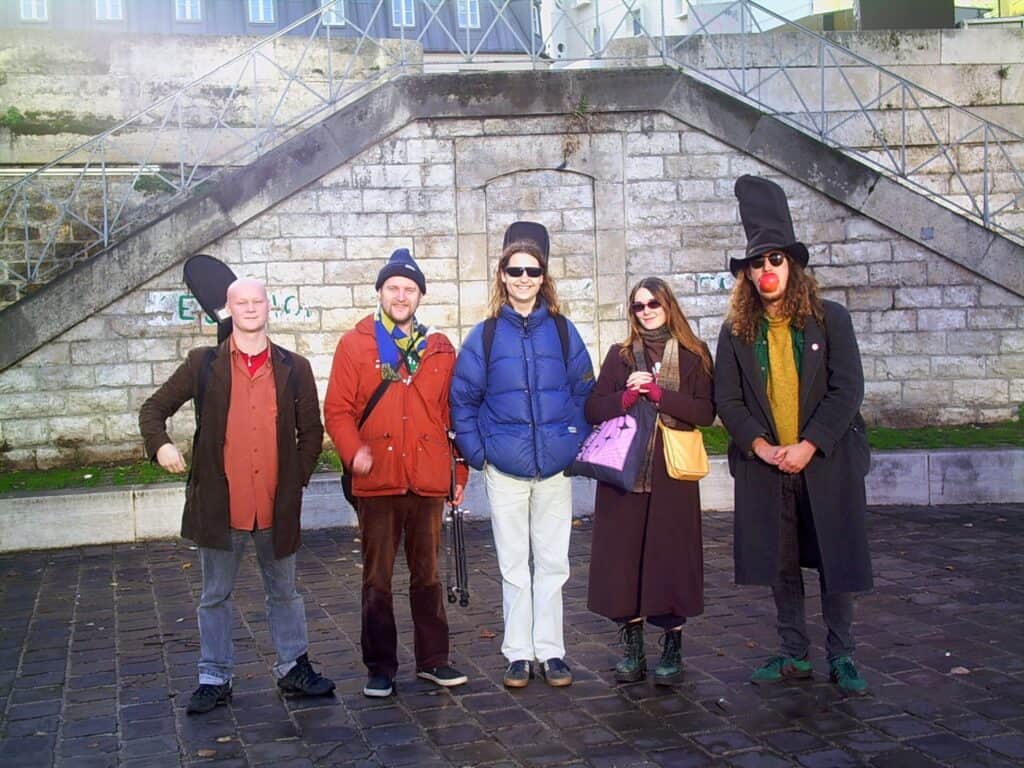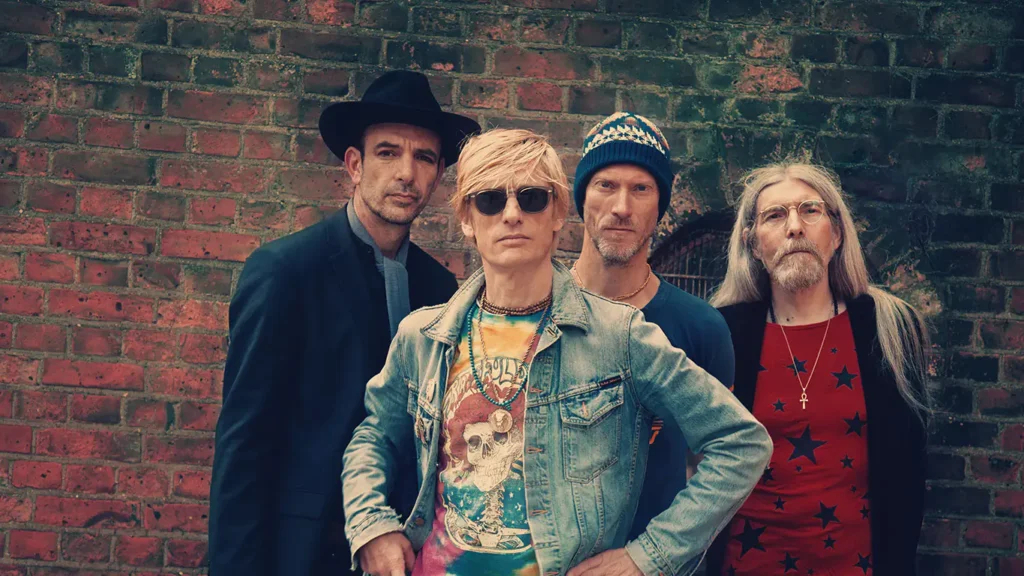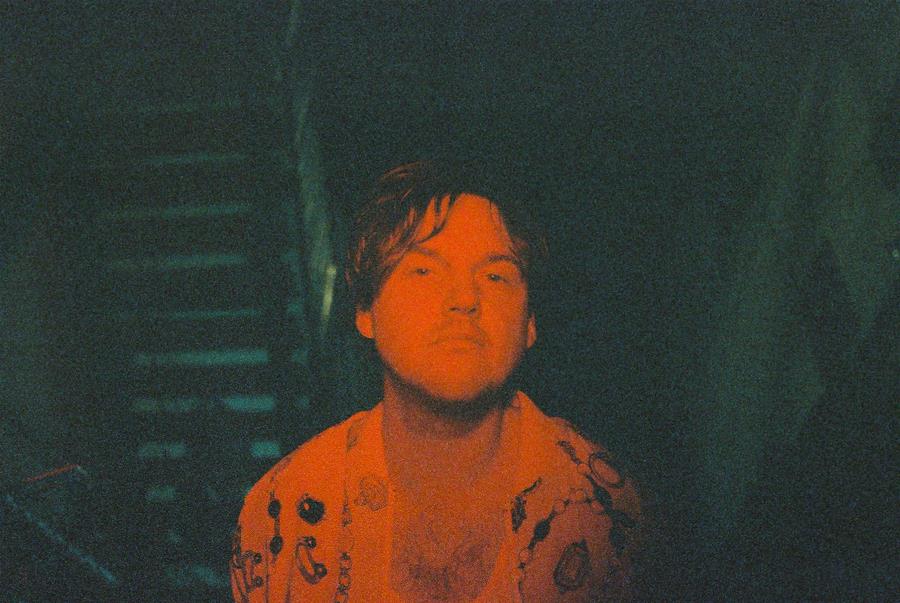‘If I Kill This Thing We’re All Going to Eat for a Week’ is the debut album from Nate Mendel’s solo project, Lieutenant U.S. We got to talk to Nate about the new record, his inspirations and his experiences throughout his career.
[like_to_read][/like_to_read]
S] Hey Nate, thanks for talking to us! What was the inspiration behind the title of your album?
N] “It was pretty instantaneous. A friend of mine was supposed to speak at a party. That just spilled out of him and I stopped him there and said ‘I want to use what you just said for an album title’. It didn’t have any purpose behind it, I just liked the phrase and I thought about how it could fit into the album themes afterwards which is what often happens with titles of albums.”
S] How have your inspirations changed and developed in comparison to your time with Sunny Day Real Estate and Foo Fighters?
N] “It’s probably my band experiences, the people that I’ve played with and I’ve been really fortunate to play with people that I think are really talented and I like playing with. When I was picking up a new instrument, like guitar or learning how to sing, those are the people I’d look to for mentoring really. I spent all this time with Jeremy [Enigk] and he’s an amazing singer. He actually gave me some advice as I was putting this together and I just learned little bits and pieces from Dave [Grohl] over the years. In terms of musically, I didn’t really have a road map there. I wasn’t trying to emulate any particular band or go for a certain style. I thought that if I just went for it and put together songs that I was inspired to do at that moment I’d have a style that would be a little bit more my own and not sound like whatever band I was going after.”
S] What was the moment when you decided you were going to sing and really found your voice?
N] “I’m still looking for that moment, I’m hoping that it comes through touring where I don’t have to think about it anymore and I’m just able to express what I want to say comfortably and do it like I’m able to do with the bass, which I’ve been playing for so long now I don’t have to think about it. I haven’t hit that point yet, it’s still a work in progress. I’m very much in my head about it and having to be very conscious about what I‘m doing just because I haven’t done it for that long. I figured out how to sing on the album, I just worked at it really hard and got to a point where I was happy with it and now I’m having to relearn the whole thing in front of a microphone. It sounds incredibly strange hearing your voice pumped back at you through speakers so I think that because that is so difficult when it comes time to make another record I will have found that voice and stop being so self-conscious about it.”
S] You have so many great guest artists on the record; Page Hamilton from Helmet, Chris Shiflett also from Foo Fighters, Jeremy Enigk from Sunny Day Real Estate. How was it working with these people in these contexts?
N] “I was actually surprised, I thought people would be a little skeptical about coming in and working on something that wasn’t their own project and was kind of untested. I wanted people to have some interest in doing the songs and enjoy the process. There was a little trepidation for asking people to do this. But as soon as I got into it, it was really comfortable and ended up being fun and not stressful at all. Probably the most interesting was working with Jeremy, we weren’t in the studio at the same time. I just sent him all the rough tracks of the record. I said ‘Hey man, what do you think? and also is there any chance you’d want to help me out with some background vocals on this’ and he came back at me and said he really liked the record and wanted to just do the vocals himself which was kind of funny. And I said ‘thank you for that that’s very flattering, but it’s a solo project, you would sing circles around me. It’s got to be me, but just backing stuff, that would be incredible.’ So he went to a studio in Seattle and laid vocals all over the record, just wherever he felt melodies or harmonies would fit in and it was great, it helped out a lot. And Josiah Johnson from The Head and The Heart also sang on ‘Believe the Squalor’ and that was incredible because when I was starting to pay attention to singing and what that was about I had seen The Head and The Heart a couple of times in that same period and was really struck by what a powerful and natural singer he was. So I asked him if he would sing along with me on that song and he was gracious enough to come in and do it.”
S] What are some of your inspirations outside of music?
N] “Lyrically, there’s a couple of books that inspired me to kick along certain lines or a phrase would pop out and your mind starts wandering and running down some avenue that’s inspired by that. Musically, random bits of melody would just pop into my head and I’d just grab an iPhone and sing into it really quickly and when I got a chance to get in the studio just go and use that as the inspiration for a song. Or sometimes you’re just sitting around with a guitar and a couple of chords come together and you get an idea how to go from that. In terms of things out in the world that inspire me it’s so much, it’s not anything in particular. It’s just all the things that I listen to through my life and a lot of that is from my formative music years from the 80’s when I was into punk rock of course, but some more of the new wave kind of things like The Talking Heads and The Clash and bands like that have always been inspirational for me. The song ‘Belle Epoque’ was inspired by a book called The Death of August by Margaret Chapman and that’s about the lead up to World War One. Lyrically I got a lot of inspiration from David Byrne, he wrote this book called ‘How Music Works’ and there were some photos in there, the way that he was writing lyrics out on a big sheet of paper and colour coating his lyrics, I thought that was and interesting way of doing it like, very stream of consciousness.”
S] Have you got any plans for a UK tour?
N] “I would love to come out there, but I haven’t got any plans, just a US tour and then Foo Fighters are gigging through the rest of the year so I’m kind of thinking about later this year or early next year.”
S] Do you feel like there’s a Lieutenant U.S. track that you’re particularly proud of?
N] “Yeah, I like the song Belle Epoque, I think that’s maybe the one I’m happiest with on the record. I think it’s somewhat neat, I like the lyrical take on it, I think it’s pretty representative of what I was trying to accomplish with the record.”
S] What’s been the highlight of your career so far that you’ll look back on when you’re older?
N] Finishing the recording for Lieutenant, getting that done because I was always skeptical as to whether I could pull that off. That was a big accomplishment, something I’m proud of and I like, but it was a very private moment. Looking back, the first tour I did of Europe with a punk rock band I was in called Christ On A Crutch is still one of the most fun tours I’ve ever done. That was my first time over in Europe so that was very memorable. I still get together with those guys sometimes, it’s like old war buddies. I’m proud of the fact that the Foo Fighters are still going strong after 20 years and we’ve found a way to still make pretty good music and put on good shows. The Sunny Day Real Estate records that I played on, I’m still very proud of those, I think those are great records. So yeah, there’s a lot of stuff.”


